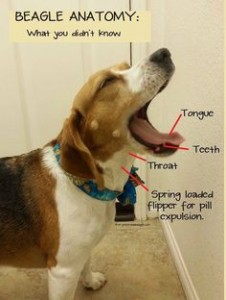There are so many factors to consider when you are trying to decide what kind of pet you should get (Or if you should get one at all!). There’s cost of adoption, cost of veterinary care, cost of basic needs, personality, energy level, your lifestyle, etc. We’ve got some things to help you decide what kind of pet works best for you!
Does Size Matter? When you are budgeting for your pet expenses, it definitely does!

Some facts:
- According to the APPA (American Pet Products Association), in 2015, the United States spent 15.7 billion dollars on veterinary care and 23 billion dollars on pet food.
- According to the ASPCA, there are approximately 150-200 million pets in our homes in the U.S.
- In 2015, the average cost of a visit to the veterinarian in the U.S. was $235.
Don’t forget about doggy daycare, boarding, and dog walking! The average pet owner spends $333 a year boarding their pet. That’s an average of $50-$100 a night. There’s also the additional cost of doggy daycare and dog walking.
Typical costs for the first year of pet ownership will differ depending on the pet’s age. However, the average cost for a small dog is $1300, the average cost for a medium dog is $1600, the average cost of a large dog is $1850, and the average cost of a cat is $1000.
So, you’re making a budget to see what kind of pet you can afford? Don’t forget about your preventatives! Generally, heartworm prevention for a large dog costs about $100-150 a year and $60-80 a year for a small dog. That’s a 20-25% difference just due to the weight of the pet!! There’s a 5-10% difference with flea and tick prevention. (Side note: Please, do NOT be discouraged by the price of preventatives. It is MUCH cheaper to prevent heartworm disease, tick born diseases, and flea infestations than to treat them! For more information, check out this blog.)
Be sure to consider the cost of routine vet care for your pet. Depending on your lifestyle and your pet, you’ll want to factor in exams, vaccines, and routine blood and fecal screenings. We understand it may seem unnecessary to exam your pet each time you bring them in. But, if your pet has not been seen in a year, 6 months, or 4 months, that’s 3-7 “human” years! Remember the old “How old is that in dog years?” line that people like to say? Turns out, that’s a real thing! Dogs age much more quickly than humans. Each “dog” year equals about 7 “human” years. So if your pet has not been examined in 6 months, lots could have changed with their health! What would your doctor do if you asked for a flu vaccine and had not been seen by him in 3-7 years? At Market Street Animal Clinic, we strive to be transparent in regard to your pet’s health care. This includes the cost of our services and products. We also have to follow federal and state laws that mandate how often we see our patients prior to providing services or prescribing medications. If you are concerned about costs, please feel free to request an estimate from one of our team members.
It can be very helpful to have an emergency fund set up for your pet, as well. Even $100 can make a difference! Picture this: You’ve just returned home from a relaxing two week vacation and you are at the boarding facility to pick up your pet. You take your pet home and the next day, he seems to not be feeling so well. So you bring him in to the vet and it is necessary to run some tests to determine the cause of your pet’s sickness. Nobody wants to deal with this, especially after having just shelled out well over $500 for boarding! Unfortunately, this can be rather common.

If you are thinking of getting a pet, you should also consider your daily lifestyle and your budget before choosing a species and a breed. While you may think Siberian Huskies are beautiful dogs, if you are looking for a pet that just wants to hangout on the couch with you, a Husky may not be the breed for you. If you’re looking for a running buddy, then a Husky may just be your match! That being said, not all dogs and cats follow “breed standards.” Every animal is different, just like we are!
It can be difficult to know where your hard earned dollars are best spent when it comes to your pet. Between Google, the pet food store, and the commercial on animal planet, there is a lot of information out there! We always recommend you ask your veterinarian for advice before checking with Dr. Google or the clerk at the pet store. A veterinarian is a medically trained professional who will use appropriate research and tools for making recommendations for your pet.
We know (and support!) that everyone has a different approach to pet ownership, as well as different financial and life priorities. We are happy to discuss how you would like to approach the health and wellness care of your pet and we will make our recommendations accordingly.



































